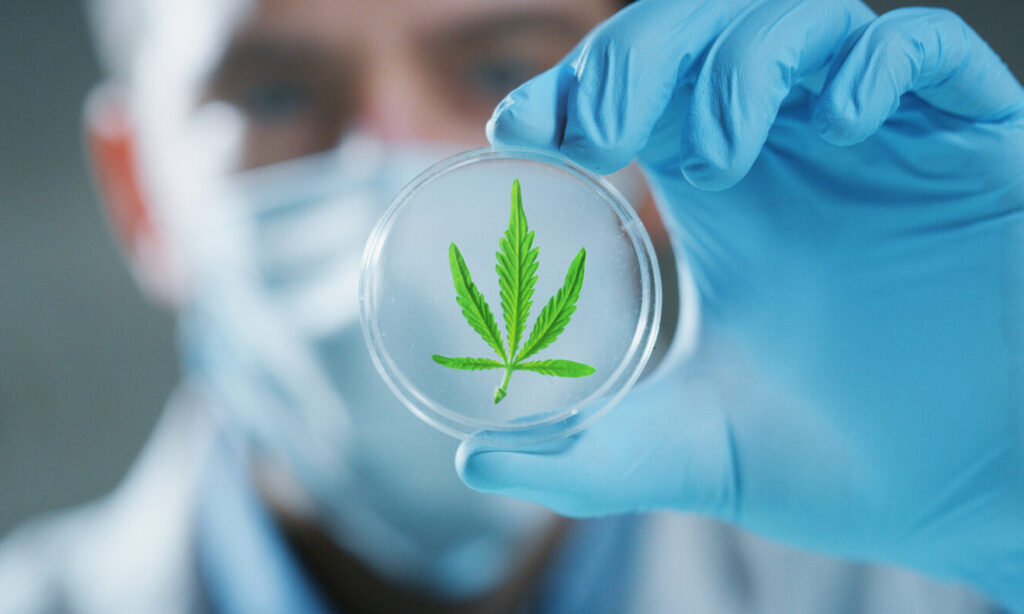
The new marijuana research law is another sign that federal prohibition is ending
On Friday, December 2, 2022, the White House announced that President Biden had enacted House Resolution 8454:
HR 8454, the Medical Marijuana and Cannabidiol Research Expansion Act, which establishes a new registration process for conducting marijuana research and manufacturing marijuana products for research and drug development purposes.
According to Marijuana Moment’s Kyle Jaeger, this is a significant and historic moment in cannabis reform:
President Joe Biden has officially signed into law a marijuana research law, making history by enacting the first standalone federal cannabis reform law in U.S. history.
Not only is HR 8454 historic because it is the first standalone cannabis law in US history, it is also likely to play an important role in ending federal prohibition.
In October, Biden asked the Department of Health and Human Services (HHS) and Department of Justice (DOJ) to evaluate marijuana’s Schedule I status.
The CSA establishes a process for determining the classification of substances and draws on research to support movements between classification lists or to remove a substance from the CSA altogether. For years, federal agencies have used the same outdated studies showing marijuana to be dangerous and of no medicinal benefit. This created a catch-22, as cannabis policy expert John Hudak described in a 2016 interview with NPR:
There is this Cannabis Catch-22 and as a Schedule 1 drug it is very difficult to research the plant. There are only certain researchers who receive the certification and license required to handle the drug. Then, of course, you need student finance. They require approval from university institutional review boards, and the burdens involved in conducting this type of research on a Schedule 1 drug are enormous. But this research will educate the medical community about its medicinal uses, and so what you need and what you can do is completely prevented by this federal government policy.
HR 8485 could allow researchers to finally break this Catch 22 loop. More research will provide HHS and DOJ with more data that will support the fact that marijuana’s Schedule I status is absolutely ludicrous. That could very well prompt Biden’s administration to remove marijuana from Schedule I, and hopefully the CSA altogether.
Photo by Nastasic/Getty Images
How HR 8485 works
The CSA regulates drugs at the federal level, including marijuana. Any controlled substance must be managed in accordance with the CSA. Marijuana is a Schedule I substance, which is the most restrictive category for all drugs in the United States. Schedule I substances are nearly impossible to research because they are considered medically safe and too dangerous for use even with a doctor.
The registration requirements for any person or organization wishing to research proposed substances are contained in 21 USC 823(f). The new law amends 21 USC 823(f) by requiring the Attorney General to register practitioners to conduct research on marijuana and its derivatives, extracts, preparations and compounds if the applicant’s research protocol has been reviewed and approved by the Department of HHS. the National Institutes of Health and otherwise in accordance with federal regulations on research protocols. The applicant must also demonstrate how they will control marijuana to prevent diversion or other unlawful use.
HR 8454 also outlines what a marijuana research application will entail. It also establishes safety requirements and requires that the Attorney General and HHS consult to determine whether there is an adequate supply of marijuana, including specific strains for research, and prepare a report to Congress on the matter.
HR 8485 also permits an academic institution, practitioner, or manufacturer to manufacture, distribute, dispense, or possess marijuana or cannabidiol for the purpose of medical research for drug development, so long as that individual or organization is registered with the Food and Drug Administration (FDA ).
HR 8485 also requires HHS, the National Institutes of Health, and other federal agencies to report to Congress on CBD, marijuana (including delta-9-THC), and the barriers to research into marijuana and CBD in states that support their use have legalized . HHS and the Company are also being asked to make recommendations on whether state-legal cannabis can be researched by federal agencies.
Daniel Shortt is a Seattle, Washington-based corporate and regulatory attorney who works extensively with entrepreneurs in the cannabis industry. You can reach him at info@gl-lg.com or (206) 430-1336. This article originally appeared on the Green Light Law Group and has been republished with permission.

Post a comment: